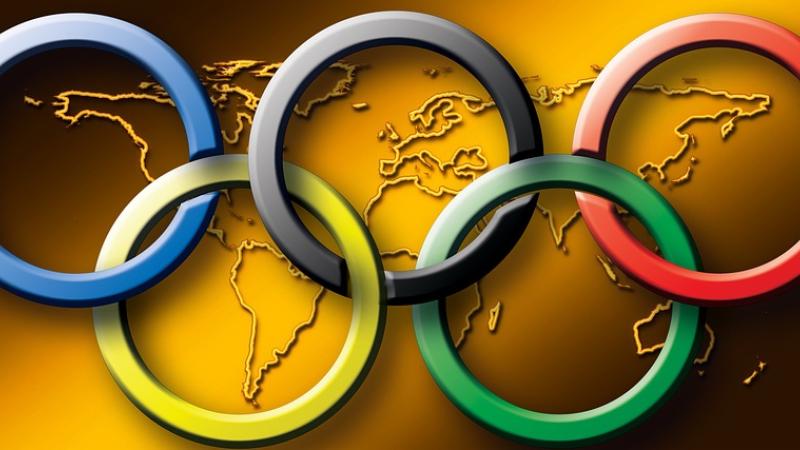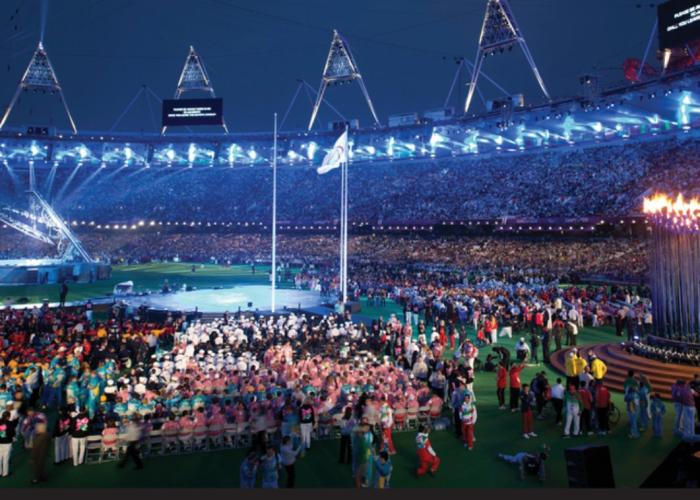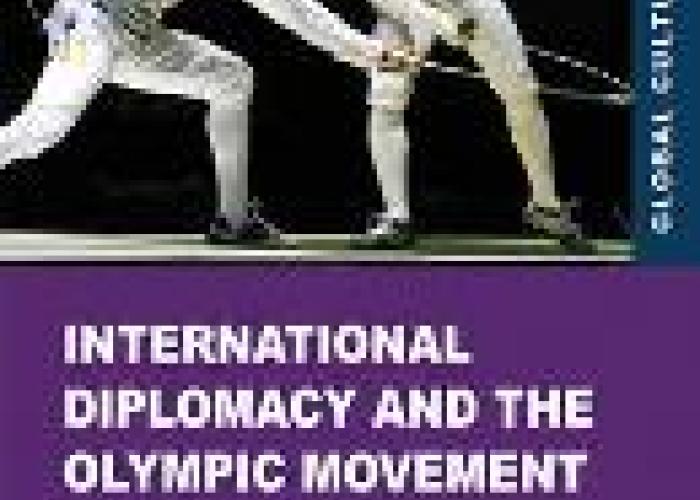Olympic Games are the world's most important international athletic competition. The Olympics bring together thousands of the finest athletes to compete against one another in a variety of individual and team sports.
The International Olympic Committee (IOC) is the supreme authority of the Olympic Movement. Its role is to promote top-level sport as well as sport for all in accordance with the Olympic Charter. The IOC defines itself as an international non-governmental organisation. The IOC "decided to revive the concept of the Olympic Truce on the occasion of the Olympic Games, with a view to protecting, as far as possible, the interests of the athletes and sport in general, and to contribute to the search for peaceful and diplomatic solutions to the world’s conflicts."
The ancient Greeks held the first Olympic games in the year 776 BC; they dedicated the games to their god Zeus – only men were allowed to participate. The four-year period between the Olympic games was called an olympiad. The Olympic games were banned by the Byzantine Emperor Theodosius II in the year AD 394.
Pierre de Frédy, Baron de Coubertin (1863-1937), a French educator and sportsman, revived the Olympic Games in 1896; the all-male 1896 games were held in Athens, Greece. The Olympic motto is, "Citius, Altius, Fortius," which means "Swifter, Higher, Stronger." The tradition of the Olympic flame began during the ancient Olympic Games. The flame symbolized the death and rebirth of Greek heroes. There was no torch relay in the ancient Olympics.
The Court of Arbitration for Sport (CAS) in Lausanne, originally founded by the IOC, provides ad hoc divisions to hear urgent disputes arising out of every Olympic Games. In CAS ad hoc Division arbitration, the governing law is the Olympic Charter, the applicable regulations, general principles of law and the rules of law, the application of which it deems appropriate. The development of lex sportiva by the Court of Arbitration for Sport (CAS) and International Sports Federations (IFs) is shaping the nature and scope of legal protection of the athlete’s opportunity to participate in the Olympic Games.
This Research Guide is intended as a starting point for research on the Olympic Games. It provides the basic materials available in the Peace Palace Library, both in print and electronic format. Handbooks, leading articles, bibliographies, periodicals, serial publications and documents of interest are presented in the Selective Bibliography section. Links to the PPL Catalogue are inserted. The Library's subject headings (keywords) xxx are instrumental for searching through the Catalogue. Special attention is given to our subscriptions on databases, e-journals, e-books and other electronic resources. Finally, this Research Guide features links to relevant websites and other online resources of particular interest.
Sources
Treaties
- Nairobi Treaty on the Protection of the Olympic Symbol adopted at Nairobi (26 September 1981)
- Olympic Charter and Other Relevant Documents
Case-law
UN Declarations and Resolutions
- United Nations General Assembly Resolution A/RES/48/11 (2 Novermber 1993): 'Observance of the Olympic Truce'
- United Nations General Assembly Resolution A/62/L.2 (16 October 2007): 'Sport for Peace and Development: Building a Peaceful and Better World through Sport and the Olympic Ideal'
Soft law
Selected books and articles
- Beloff, M.J., "The Jurisprudence of the Ad Hoc Panels of the CAS from Atlanta to London", in Bernasconi, M.A. and Rigozzi, A. (eds.), International Sport Arbitration: 6th Conference CAS & SAV/FSA Lausanne 2016, Bern, Editions Weblaw, 2018, pp. 123-139.
- Belloubet, N. (ed.), Les Jeux Olympiques, Paris, Seuil, 2024.
- Böhm, F., Zulassung und Teilnahme an Olympischen und Paralympischen Spielen als Rechtsproblem: vor dem Hintergrund der Suspendierung eines Nationalen Olympischen oder Paralympischen Komitees, 1. Auflage, Baden-Baden, Nomos, 2022.
- Boussard, S., L.F. Lalliot and F. Latty (eds.), L’organisation des Jeux olympiques et paralympiques de Paris 2024: Questions de droit public, Paris, Lefebvre Dalloz, 2024.
- Boykoff, J., "Hosting the Olympic Games in Developed Countries: Debating the Human Rights Ideals of Sport, in: Keys, J.B. (ed.), The Ideals of Global Sport: from Peace to Human Rights, Philadelphia, University of Pennsylvania Press, 2019, pp. 156-177.
- Brabander, R.H.E., Participating in the Olympic Games: Lights, Camera and - Legal - Action? An inquiry into the compatibility of Rule 40 of the Olympic Charter concerning the commercial opportunities of Olympic participants with EU competition law ahead of Tokyo 2021, Leiden, Leiden University Law School, 2020.
- Burke, R., "Peace: the United Nations, the International Olympic Committee, and the renovation of the Olympic Truce", in: Keys, J.B. (ed.), The Ideals of Global Sport: from Peace to Human Rights, Philadelphia, University of Pennsylvania Press, 2019, pp. 85-105.
- Chatziefstathiou, D. and Henry, I.P., Discourses of Olympism: from the Sorbonne 1894 to London 2012, Basingstoke, Palgrave Macmillan, 2012.
- Dahill, E.H., "Hosting the Games for All and by All: the Right to Adequate Housing in Olympic Host Cities", Brooklyn Journal of International Law, 36 (2012), No. 3, pp. 1111-1148.
- Duval, A., "The Russian Doping Scandal at the Court of Arbitration for Sport: Lessons for the World Anti-Doping System", in Duval, A. and Rigozzi, A. (eds.), Yearbook of international sports arbitration 2016, The Hague, T.M.C. Asser Press, 2017, pp. 61-100.
- Duval, A., "Getting to the Games: the Olympic Selection Drama(s) at the Court of Arbitration for Sport", The International Sports Law Journal, 16 (2016, No. 2, pp. 54-66.
- Faut, F., "The Prohibition of Political Statements by Athletes and its Consistency with Article 10 of the European Convention on Human Rights: Speech is Silver, Silence is Gold?", The International Sports Law Journal, 14 (2014), No. 3-4, pp. 253-263.
- Gauthier, R., "Olympic Game Host Selection and the Law: A Qualitative Analysis", Jeffrey S. Moorad Sports Law Journal, 23 (2016), No. 1, pp. 1-68.
- Gauthier, R., The International Olympic Committee, Law, and Accountability, London, New York, Routledge, Taylor & Francis Group, 2017.
- Gotlib, Z., "Athletes Have Rights, Too, Right: Investigating the Extreme Unfairness in Sports' Purported Supreme Authority - Why the International Court of Arbitration for Sport Fails to Reign Supreme", Cardozo Journal of International & Comparative Law, 24 (2015-2016), Nos. 1-2, pp. 389-422.
- Grell, T., "The International Olympic Committee and human rights reforms: game changer or mere window dressing?", The international sports law journal, 17 (2018), No. 3-4, pp. 160-169.
- Gustafson, J., "Bronze, Silver, or Gold: Does the International Olympic Committee Deserve a Medal for Combating Human Trafficking in Connection with the Olympic Games?", California Western International Law Journal, 41 (2011), No. 2, pp. 433-476.
- Guthoff, I., "Creating a Sustainable Olympic Games", Syracuse Journal of International Law and Commerce, 44 (2017), No. 2, pp. 357-396.
- Hilpert, H., Die Olympischen Spiele der Antike und Moderne im Rechtsvergleich, Stuttgart, Boorberg, 2014.
- Höfling, W., J. Horst und M. Nolte (eds.), Olympische Spiele, Tübingen, Mohr Siebeck, 2013.
- Keys, B.J, (ed.), The Ideals of Global Sport: from Peace to Human Rights, Philadelphia, University of Pennsylvania Press, 2019.
- Kopczyk, R., "Legal Problems of the Olympic Movement", International Sports Law Journal, (2012), No. 2, pp. 60-63.
- Lenskyj, H.J. and Wagg, S. (eds.), The Palgrave handbook of Olympic studies, Basingstoke, Palgrave Macmillan, 2012.
- Mangan, M. and Defriez, H., "The Case for the Reinstatement of the Osaka Rule prohibiting Athletes with Prior Doping Suspensions from competing in the Olympic Games", Maxwell's International Sports Law Review, 17 (2017), No. 2, pp. 45-51.
- Mavromati, D., "The Rules governing the CAS Anti-Doping and Ad Hoc Divisions at the Olympic Games", Maxwell's International Sports Law Review, 17 (2017), No. 3, pp. 14-24.
- Mestre, A.M., The Law of the Olympic Games, The Hague, T.M.C. Asser Press, 2009.
- Panagiotopoulos, D.P., "Lex Olympica: From the Inter-State Ancient Greek Law to the Rules of Participation in the Modern Olympic Games", International Sports Law Journal, (2012), No. 2, pp. 63-66.
- Richards, A., P. Fussey and A. Silke, Terrorism and the Olympics: Major Event Security and Lessons for the Future, London, Routledge, 2011.
- Rürup, R. (ed.), Selwyn, P.E. (transl.), 1936 : die Olympischen Spiele und der Nationalsozialismus : eine Dokumentation = 1936 : the Olympic Games and National Socialism : a documentation, Berlin, Stiftung Topographie des Terrors, 1999.
- Schaus, G.P. and Wenn, S.R., Onward to the Olympics: Historical Perspectives on the Olympic Games, Waterloo, ON, Wilfrid Laurier University Press, 2007.
- Spaaij, R. and C. Burleson (eds.), The Olympic Movement and the Sport of Peacemaking, London, Routledge, 2013.
- Stelitano, A., Le Olimpiadi all'ONU: le Nazioni unite e lo sport: dall'embargo all'Olimpismo, Padova, Cleup, 2012.
- Suárez González, O., La inmunidad olímpica: la violación de derechos de los deportistas y la propuesta para la creación de un mecanismo jurídico de protección, Madrid, Reus, 2019.
- Sugiyama, S. and Hangartner, S., "Ahead of the Tokyo 2020 Olympic Games - The Fight against Doping in Japan and in Switzerland at a Glance", Causa Sport: die Sport-Zeitschrift für nationales und internationales Recht sowie für Wirtschaft, No. 3 (2019), pp. 243-253.
- Trova, E., V. Alexandrakis and P. Skouris, Olympic Games of the European Union, Baden-Baden, Nomos, 2011.
- Varens, V., Das "olympische" Werbeverbot: eine rechtliche Untersuchung des Werbeverbots nach Bye-law 3 to Rule 40 of the Olympic Charter hinsichtlich dessen Vereinbarkeit mit dem EU-Recht, Zürich, Dike Verlag, 2017.
- Werra, J. de, "Athletes & Social Media: what constitutes Ambush Marketing in the Digital Age? The Case of Rule 40 of the Olymplic Charter", in: Rita Trigo Trindade, Rashid Bahar, Giulia Neri-Castracane (eds.), Vers les sommets du droit: liber amicorum pour Henry Peter, Genève, Schulthess, 2019, pp. 3-24.
- Wollmann, A.S., Nationality requirements in Olympic sports, Oisterwijk, Wolf Legal Publishers, 2016.
- Olympics and International Sports Law Research Guide (Georgetown Law Library)



